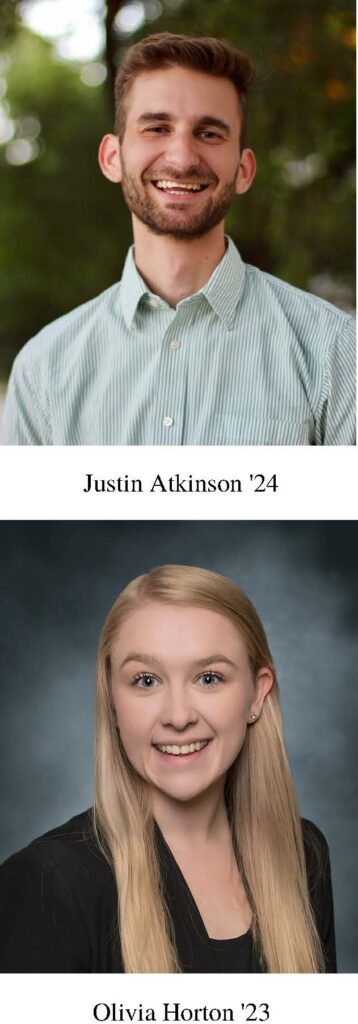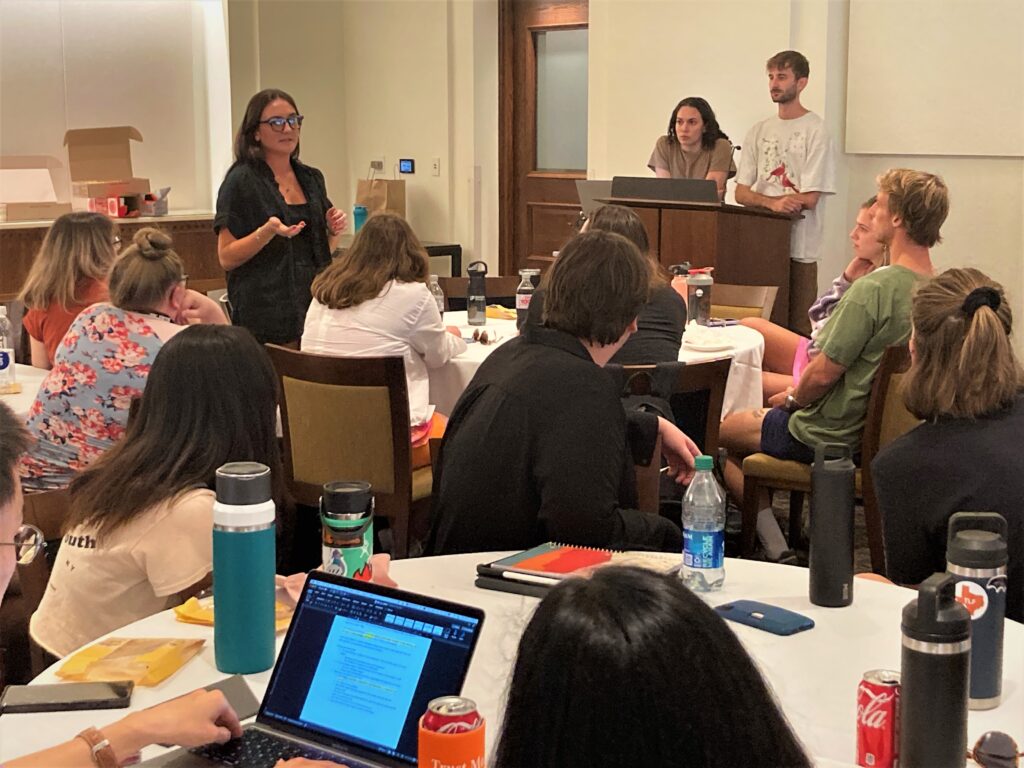Over the 2021-22 academic year, the Richard and Ginni Mithoff Pro Bono Program piloted a Title IX pro bono project, partnering with The University of Texas at Austin’s Title IX office to support the office in its effort to appoint advisors to parties involved in Title IX proceedings. Through the project, law students serve as advisors to parties involved in disciplinary proceedings that allege conduct covered by Title IX of the Higher Education Amendments Act of 1972 and/or by the UT Handbook of Operating Procedures (HOP) 3-3031, including sexual assault, interpersonal violence, stalking, sexual harassment, and sex discrimination.
Under new regulations promulgated under former Secretary of Education Betsy DeVos during the Trump Administration, all parties are required to have an advisor during live hearings in disciplinary proceedings covered by Title IX. Parties in these proceedings may hire or select an advisor of their choice, but upon request universities are required to provide advisors to both complaining parties and responding parties. UT has chosen to use the same procedures required by the Title IX regulations, including live hearings with advisors, in disciplinary proceedings that involve conduct that is covered by HOP 3-3031 and that would fall under Title IX if it had occurred on campus—for example, in cases alleging a sexual assault involving UT affiliates in an off-campus apartment.
During the first year of the project, the UT Title IX office appointed law student volunteers with the Mithoff Program to serve as advisors to six undergraduate students involved in Title IX proceedings. The law students worked in teams of two and were supported by a Pro Bono Scholar, Mithoff Program director Andrea Marsh, and pro bono supervising attorneys Bronwyn Blake ’05 and Worth Carroll ‘15. The law student teams worked with four complaining parties who were pursuing formal complaints under Title IX, and two responding parties who were named in formal complaints. The cases involved allegations of sexual assault, interpersonal violence, and stalking. In their advisor role, law student volunteers explained the Title IX process and possible outcomes to their advisees and helped the advisees with a variety of tasks, including gathering and submitting evidence, identifying witnesses, preparing for investigative interviews, reviewing and commenting on draft investigative reports, preparing statements and questions for live disciplinary hearings, and drafting and responding to appeals. One team member attended the hearing with each advisee and was responsible for questioning witnesses on behalf of the advisee.
 At the conclusion of its first year, the project received very positive feedback from the law student volunteers and from main campus. Justin Atkinson, then a 1L, served as the advisor for two students. “For each case, my teammate and I worked with a student over a period of months to establish trust, collect evidence, and build up a case theory,” said Atkinson. “I learned a lot about preparing clients to best advocate for themselves and could not have asked for a better survey of advocacy skills during my first year of law school.” The project will continue and expand during the 2022-23 academic year — accepting more appointments (up to 20) and expanding the types of cases in which it will accept appointments.
At the conclusion of its first year, the project received very positive feedback from the law student volunteers and from main campus. Justin Atkinson, then a 1L, served as the advisor for two students. “For each case, my teammate and I worked with a student over a period of months to establish trust, collect evidence, and build up a case theory,” said Atkinson. “I learned a lot about preparing clients to best advocate for themselves and could not have asked for a better survey of advocacy skills during my first year of law school.” The project will continue and expand during the 2022-23 academic year — accepting more appointments (up to 20) and expanding the types of cases in which it will accept appointments.
The project was the brainchild of Olivia Horton ’23 and built on her experience doing peer education around Title IX and sexual assault as an undergraduate at Georgetown University. Horton also worked with the Student Affairs Office to start a peer-led sexual assault education program at Texas Law. “Participating in Title IX advocacy in college, I learned that one of the central complaints students have about the process is that it is confusing and daunting to navigate alone. A program for law school students to help members of their campus community navigate Title IX proceedings struck me as an effective, resource-efficient solution,” said Horton. “Seeing the impact that this project has had on the UT community has been the most rewarding experience of my professional career thus far. It’s a privilege to be able to serve members of the UT community in this way.”

